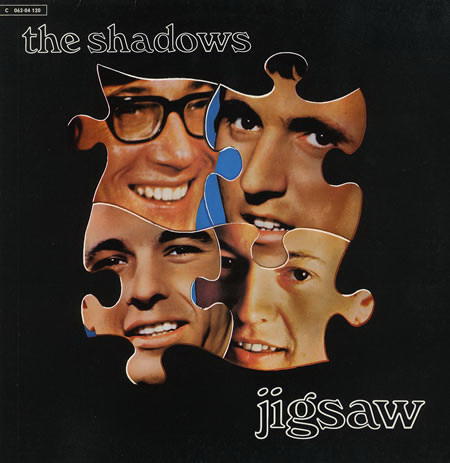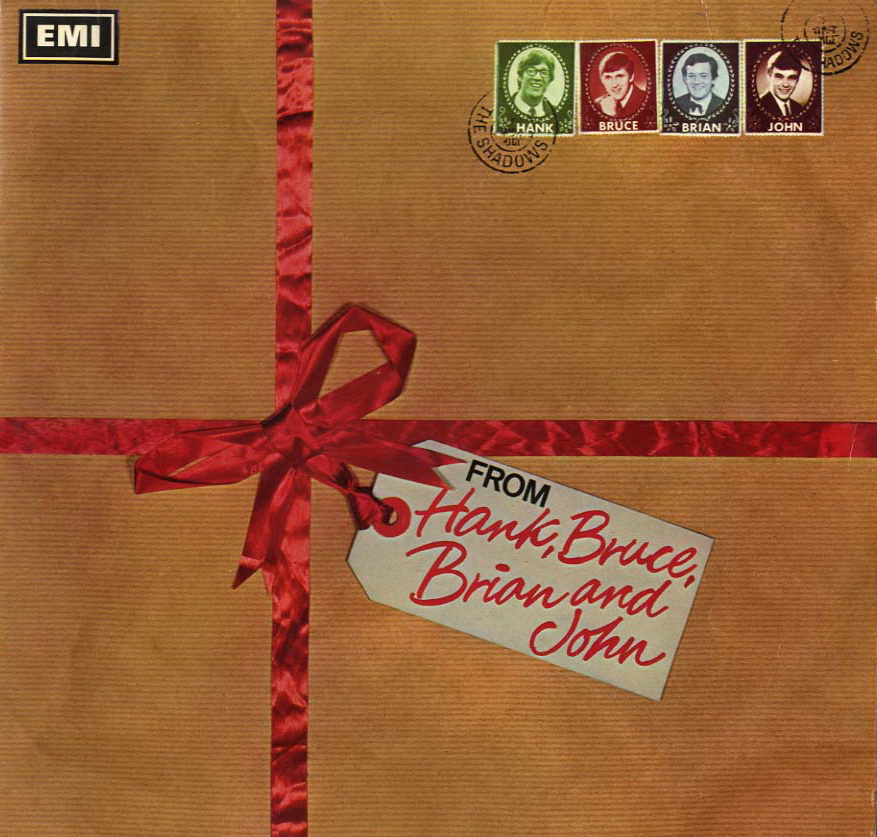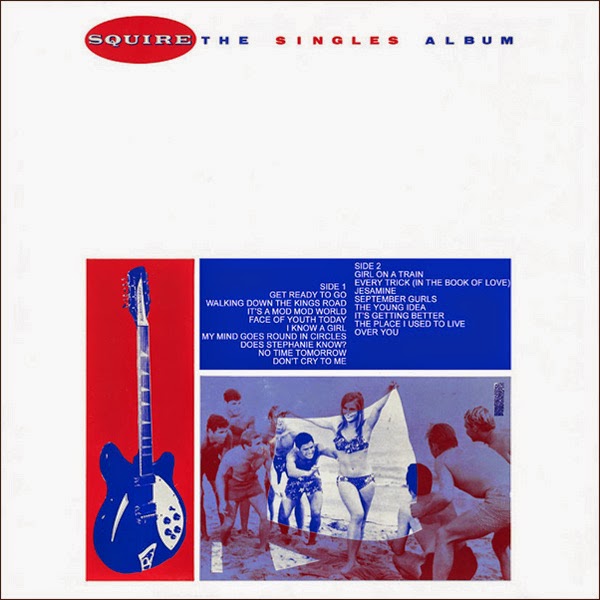1967. The Summer of Love. Sgt. Pepper's and Satanic Majesties, San Francisco, flowers in your hair...and the dear old Shadows, still besuited and a-twanging, a-grooving, and a-moving, and so firmly locked in a bygone age that even grandma thought they were a little square. And then you play their latest album. No one's ever going to believe that Jigsaw (released elsewhere as Shadows 67) is a lost psychedelic masterpiece; no one is ever going to line the Shadows' version of "Tennessee Waltz" up alongside "Lucy in the Sky with Diamonds," no matter how revolutionary John Rostill's use of fuzz bass may have been. But if Eric Clapton borrowed Jimi Hendrix's effects board, and you dropped more acid than either of them, closed your eyes, and drifted away, you could forget the sleeve's slick warning of "smooth arrangements in the style of today" and wonder what would happen if Pete Townshend sent some trademark chords through one song, Cream muscled in on another, and the Jeff Beck Group decided to take out "Cathy's Clown.""Prelude in E Major" and a dreamy "Stardust" head off the handful of undeniably traditional Shadows arrangements, and do so with applaudable aplomb. But the real meat on the album comes when the Shadows forget to reflect past glories, and simply let rip.
"Friday on My Mind," the Easybeats chestnut so beloved of the garage band revival, is positively nasty and so accurately predicts David Bowie's later version that one has no doubt what he was doing during this halcyon year. Equally rousing is the cod country cowpoke anthem "With a Hmm-Hmm on My Knee" -- so loudly does history acclaim the Shadows' instrumental prowess and influence that their contributions to musical humor are frequently overlooked. Suffice to say, "Hmm-Hmm" slips effortlessly into the same bag as the earlier "What a Lovely Tune" and so on and, if the Shadows' place alongside the Bonzo Dog Doo Dah Band in the pantheon of rock's great comics remains in doubt, check out "Winchester Cathedral," which can barely stand for smirking, and "Green Eyes," which shares its rhythm with the Bonzos' own "Hunting Tigers Out in India." All of which adds up to one incontrovertible fact. This album is one of the all-time psych-era greats. And it's still a well-guarded secret. Funny how that happens, isn't it? [Dave Thompson]
By 1967, the Shadows were at the end of their hitmaking career, and very close to breaking up altogether. Before they went, however, they had one final classic to deliver, an album that arrived packaged up like a parcel, which, when unwrapped, revealed a host of solid gems, evidence that no matter how far pop music had moved from the model they helped style a decade earlier, the Shadows had no intention of being left behind. From Hank, Bruce, Brian, and John peaks with a typically well-crafted Graham Gouldman original, "Naughty Nippon Nights," but from start to finish, it rattles with a defiance that makes a mockery of the band's so-called "veteran" status. No matter that they scored their first hits (with Cliff Richard) while Lennon and McCartney were still killing time in the Quarrymen. For all that the Beatles brought to the '60s, none of it would have been possible without the Shadows, and their blistering version of "You're a Better Man Than I," the jokey "Snap Crackle and How's Your Father," and excellent covers of "The Last Train to Clarksville" and "The Letter" are career best album tracks (even if they can't compete with the band's best 45s). Plus they play with a ferocity that borders on menacing at times, even when slowing everything down and welcoming Cliff Richard into the pack for the hit "The Day I Met Marie"; it's a beautiful, dreamy song, but there's something oddly menacing about it as well, a moodiness that taps so thoroughly into the underbelly of psychedelia that, if this wasn't good ol' Cliff and the Shads, it could have been almost anyone.
[Dave Thompson]
Two maybe lesser known but pretty interesting Shadows '67 slabs. Dig!






































































































.png)

.png)
















